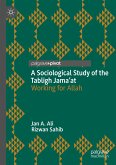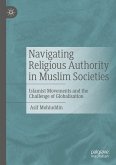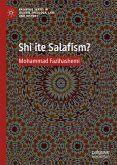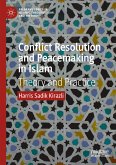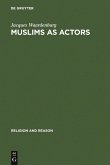This book is a study of American Muslims' perspectives on Muslims who become radicalized and choose to support the Islamic State. Muslim radicalization is a global phenomenon that has affected American Muslims as it has Muslims throughout the world. In 2015, approximately 250 Americans joined the Islamic State (IS), and some still sympathize with it. Based on 51 in-depth interviews conducted in nine states from 2017 to 2021, this book offers a thematic understanding of radicalization, touching on themes such as Islamic history, Muslims' social and political identities, cultural dilemmas, radicalization outlets, mental health, media stereotypes, Islamophobia, security, and the impact of COVID-19 on radicalization. This book differs from previous scholarship on the causes of radicalization by focusing on the perspectives of non-radicalized American Muslims. While some previous scholarship has focused on Muslim radicalization in Europe, this book provides a new spectrum of views from theUnited States. It also offers pathways to de-radicalization. The interview data is complemented with relevant literature, analysis of media perspectives, and the author's personal observations.
Nahid Afrose Kabir is Professor of History in the Department of English and Humanities at BRAC University in Dhaka, Bangladesh. She is also an Adjunct Professor at the University of South Australia in Adelaide and Edith Cowan University in Perth, Australia. Dr. Kabir was a Visiting Researcher at Georgetown University in Washington DC (2016-2021), and a Visiting Fellow at Harvard University in Cambridge, Massachusetts, USA (2009-2011). She is the author of Muslims in Australia: Immigration, Race Relations and Cultural History; Young British Muslims: Identity, Culture, Politics and the Media; Young American Muslims: Dynamics of Identity; and Muslim Americans: Debating the Notions of American and Un-American.
Dieser Download kann aus rechtlichen Gründen nur mit Rechnungsadresse in A, B, BG, CY, CZ, D, DK, EW, E, FIN, F, GR, HR, H, IRL, I, LT, L, LR, M, NL, PL, P, R, S, SLO, SK ausgeliefert werden.



